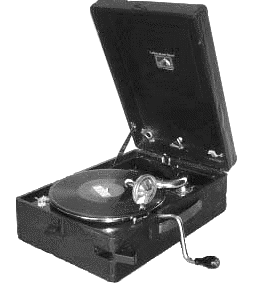- AccurateRip
- Acoustid
- AES/EBU
- AirPlay
- Amplifier
- aptX
- Audio file formats
- ASRC
- AVB
- Bit perfect jitter
- Bits: 16 or 24
- Bit perfect playback
- Bitrate
- Bluetooth
- Burn-in
- BWF
- Cables
- CDtext
- Chromecast
- Clipping
- Clock
- Codec
- Compression
- CRC
- Crossover
- Cue sheet
- DAC
- Damping
- DASH
- Digital
- Digital Room Correction
- Dither
- DLNA
- Drivers
- DoP
- DSP
- EBU R128 (loudness)
- FFT
- FireWire
- Freedb
- Gapless playback
- Generation loss
- HDMI
- Headphone listening
- Hearing
- Hires recording
- Homeplug
- I2S
- ID3
- Inter sample peak
- LDAC
- Linearity (DAC)
- Memory playback
- Music Server
- OCF
- OFC
- PCM
- Perception
- RAID
- ReplayGain
- Ripping
- RFI
- RIAA
- Router
- Sampling, up and over
- Sample Rate Conversion
- Speakers
- S/PDIF
- Storage
- Sync
- Tagging
- Toslink
- Transcoding
- UAA
- Units
- UPnP
- USB
- VST
- WiFi
- WiSA
UPnP (Universal Plug and Play – Streaming audio)
The name is a bit of a pun on Microsoft's Plug&Play.
Plug&Play means you plug a device into a computer and it works without any interference from the user.
UPnP does the same but this time over the network.
UPnP devices auto-discover each other and exchange there capabilities.
Although not limited to streaming AV, in practice streaming audio and video is where UPnP is about.
Source: http://www.upnp.org/
Today UPnP has become part of OCF.
Of course UPnP has its own nomenclature:
Server: streams the music to UPnP clients in the network,
Renderer: a device with can play the music received
from the server
Control Point: the remote control.
If you are looking for a UPnP server:
- check user forums before you buy. A lot of these server software is very buggy and/or cracks under load.
- check if it is DLNA/UPnP certified.
Note: I wrote above lines in 2009.
Today (2013) the situation is much better.
Reliability has strongly improved.
There are many media streamers supporting UPnP/DLNA.
UPnP is incorporated in DLNA.
Today you can also access your media at home over the internet using UPnP.
Unfortunately it is a security risk as you have to open ports in your router.
Windows
XP is UPnP compliant.
XP can be used as a server only,
Vista can be both a server and a client (renderer/control point).
If you enable media sharing in Vista (an option in Windows Media Player) the PC becomes visible as a media player in the network.
Win7 and higher is fully UPnP/DLNA compliant.
OSX
OSX doesn't support UPnP, Apple of course has its own proprietary protocol; Airplay
You need third party UPnP software on OSX
Android
There are UPnP/DLNA compliant media players for Android.
This allows you to use your smart phone as a remote control for your media player.
A couple of examples can be found here.

